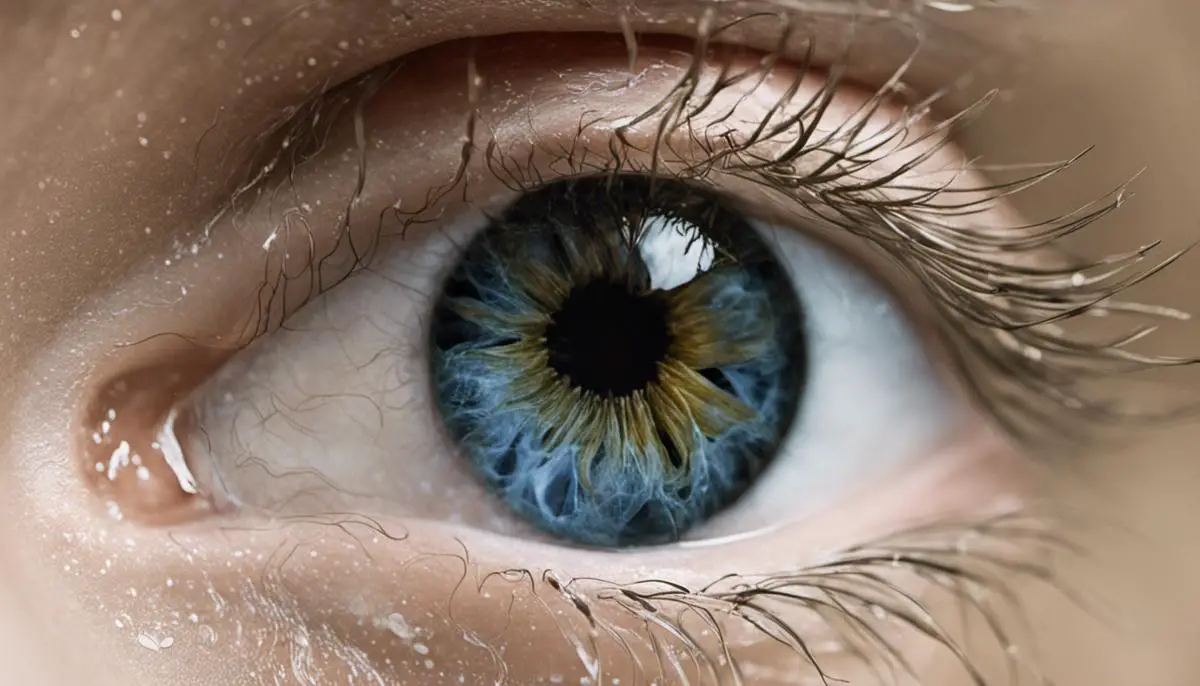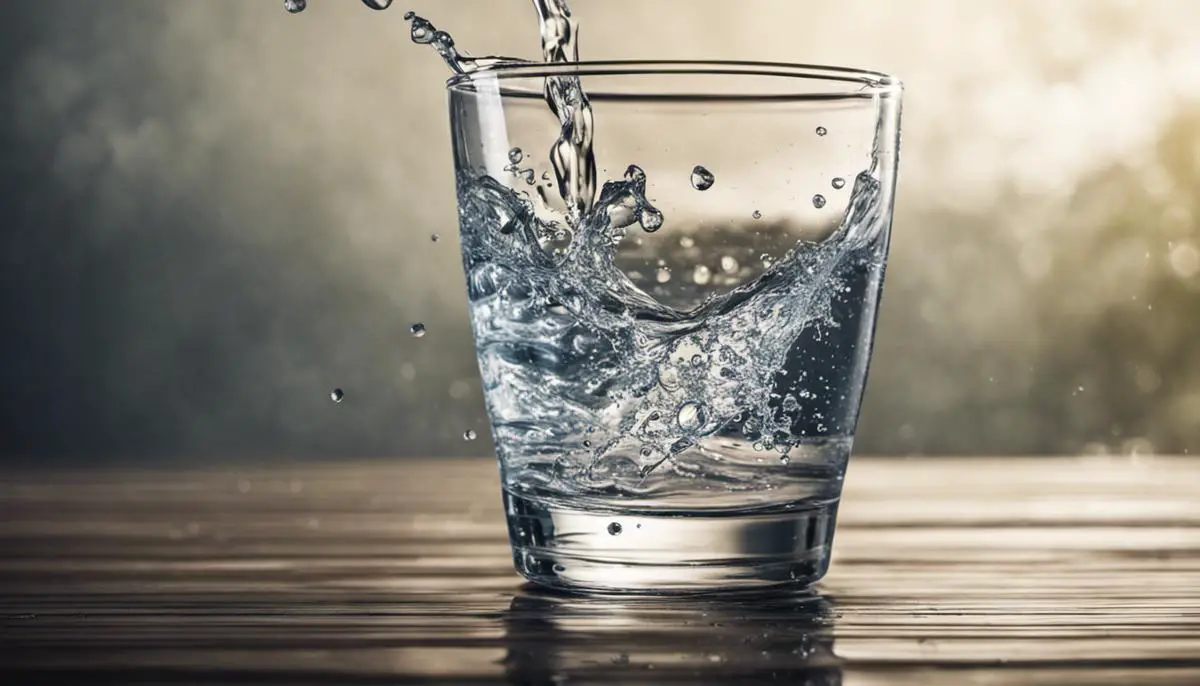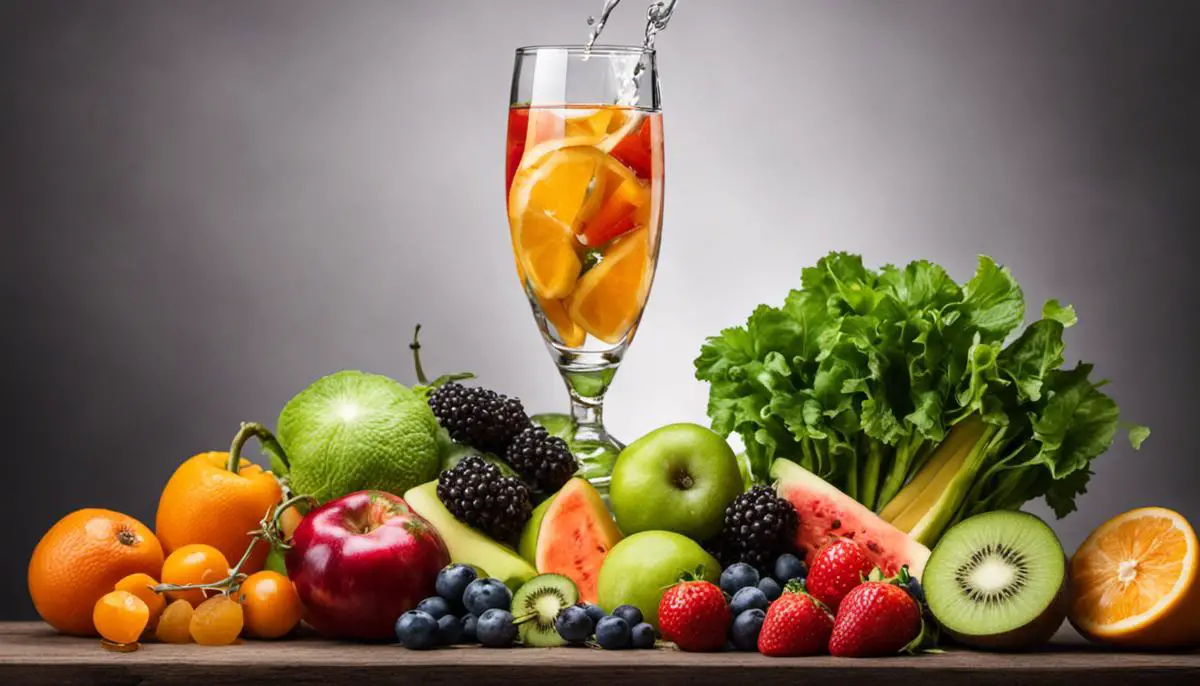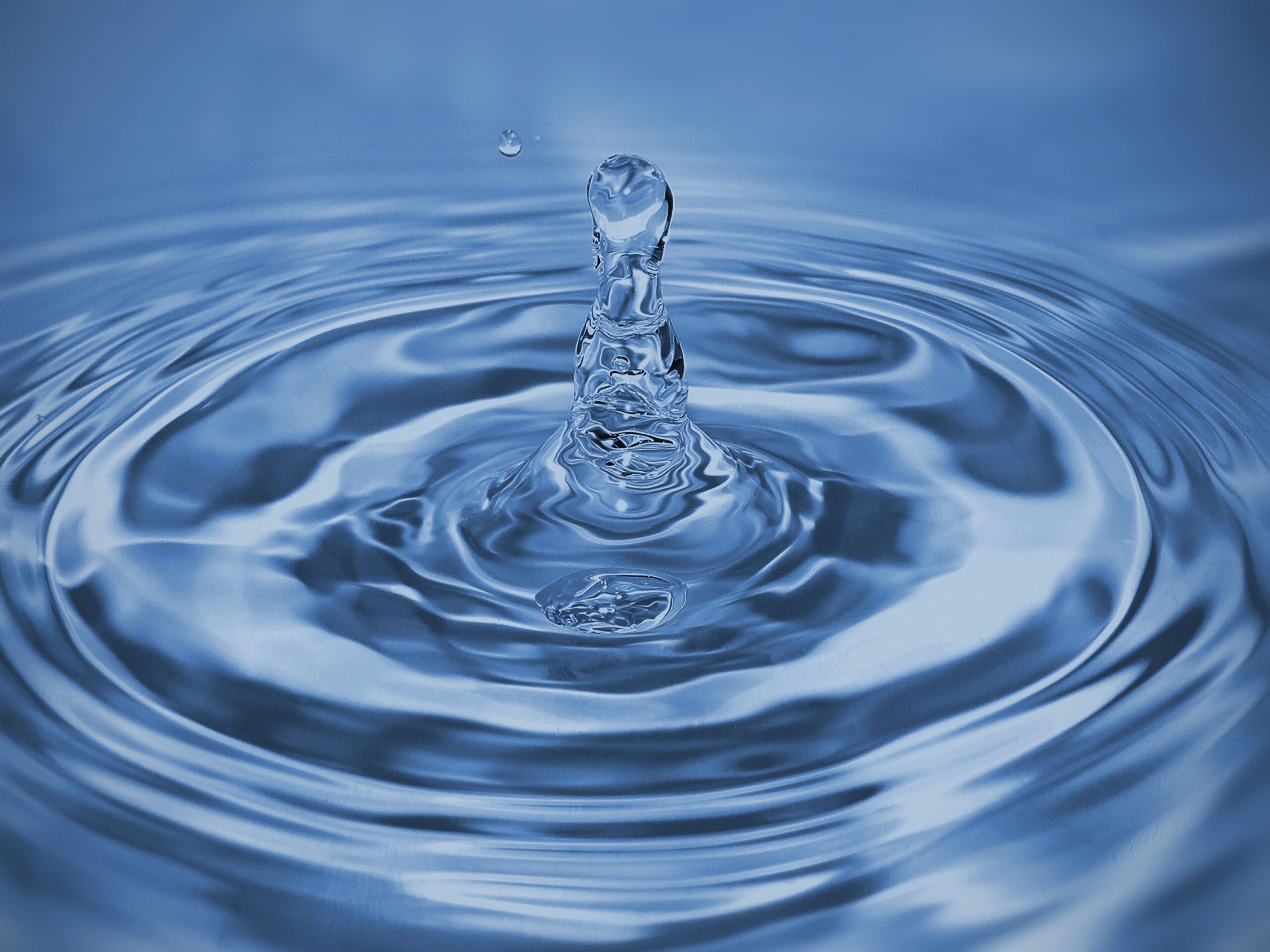Staying adequately hydrated is an essential component of maintaining good health, yet many people fall short of meeting their daily water intake needs. The significance of water in our bodies is immeasurable given the crucial role it plays in promoting various bodily functions. With far-reaching implications like proper digestion, nutrient absorption, and body temperature regulation, hydration is linked directly with our overall well-being. This comprehensive exploration of hydration will delve into the reasons why our bodies require a steady supply of water, the quantity of water intake needed daily taking into account personal factors, and even broaden the view to foods that assist in maintaining ideal hydration levels. The paper also embarks on the vital mission of creating awareness about how to spot signs of dehydration promptly, so we can timely address and counteract them.
Understanding The Importance Of Hydration
The Role of Water in the Body
Water represents about 60% of the body weight in adults. It’s responsible for numerous essential roles to maintain the body’s health and its normal physiological processes. Water lubricates joints, helps regulate internal body temperature through breathing and sweating, carries nutrients and oxygen to cells, and assists in the detoxification process by flushing out waste and toxins from the body.
Promoting Health Through Hydration
Hydration is crucial for maintaining good health. Proper water intake ensures proper digestion and prevents constipation. It keeps skin healthy and glowing by maintaining its elasticity and combating signs of premature aging. Additionally, hydration aids in weight management by increasing feelings of satiety and boosting metabolic rate. It also decreases the risks of urinary tract infections, kidney stones, and certain types of cancers, like bladder.
Detrimental Effects of Dehydration
Dehydration occurs when the body’s water intake is less than its output. This mismatch can lead to adverse effects ranging from mild to severe. Mild dehydration may manifest in symptoms such as dry mouth, tiredness, and decreased urine output. Persistent dehydration can result in more serious complications including kidney disease, seizures, and shock – a sudden drop in blood pressure that could cause unconsciousness or even death.
How Much Water Should You Drink?
Water needs are individual and depend on personal factors such as age, sex, weight, physical activity level, and overall health. However, a general guideline often suggested is the “8×8 rule,” which recommends drinking eight 8-ounce glasses of water per day, amounting to around 2 liters, or half a gallon. This is not a scientific finding but a simple-to-remember rule that can ensure a person is properly hydrated.
The Institutes of Medicine (IOM) recommends a more individual approach, suggesting a daily total water intake of 3.7 liters (or about 13 cups) for men and 2.7 liters (or about 9 cups) for women. This total considers all beverages and food.
Remember, certain situations may increase the need for water, like exercising, hot weather, illness, or pregnancy and breastfeeding. Also, certain medical conditions such as kidney disease may require restrictions on water intake.
Hydration Beyond Water
Water isn’t the only source of hydration. Beverages like milk, tea, and juice, and foods like fruits and vegetables can also contribute to your daily water intake. For instance, foods like cucumbers and watermelons are packed with water and can help with hydration. But keep caution with beverages that contain alcohol and caffeine, as they could lead to dehydration if consumed in excess.
Sustaining an optimal level of hydration is crucial to our overall health and well-being. Grasping the importance of hydration and being vigilant of dehydration symptoms are fundamental aspects of health. A balanced approach towards hydration maintenance is recommended, taking into account personal needs and circumstances, various fluid sources, and foods with high water content. If required, professional help could be sought for personalized advice and recommendations from a healthcare provider.

How Much Water Should You Drink Daily?
Grasping the Significance of Regular Water Consumption
Water, an indispensable life-sustaining element, helps regulate body temperature, enables joint lubrication, aids in nutrient transportation, and facilitates waste elimination. To retain peak health, it’s essential to drink appropriate quantities of water every day. However, the daily recommended water intake can vary based on variables such as age, sex, physical activity, and overall health condition.
The 8×8 Rule for Water Drinking: What? Is It Enough?
A commonly heard recommendation about water intake is the 8×8 rule, referring to drinking eight 8-ounces glasses of water per day, which equals about 2 liters or half a gallon. This rule is easy to remember, and ideally, it keeps an average individual sufficiently hydrated. However, this blanket-rule isn’t entirely accurate as water needs vary widely among individuals.
Factors Influencing Individual Hydration Needs
Several factors can influence how much water a person should consume in a day. For instance, physically active individuals lose more water through sweat, so they require more water than those who are less active. If you’re pregnant or breastfeeding, you may require additional fluids to stay hydrated. Health conditions such as kidney problems or heart failure can also necessitate different fluid needs. Moreover, environments with hot or humid climates can increase your water loss through sweating, thus increasing your water requirements.
Age and Gender
The National Academies of Sciences, Engineering, and Medicine recommends a daily water intake of about 3.7 liters (or 13 cups) for men and 2.7 liters (or 9 cups) for women. This count includes all beverages and food.
Water Consumption and Meals
Interestingly, about 20% of your daily water intake comes from food, particularly fruits, vegetables, and certain types of meat. The remaining 80% comes from various beverages, including water. Drinking a glass of water with every meal is a good way to ensure you are hydrating effectively.
Signs of Inadequate Water Intake
It’s also vital to recognize signs of inadequate water consumption, such as dark yellow urine, only urinating a few times per day, dry mouth, fatigue, and dizziness. Severe dehydration may lead to confusion, irritability, or fainting. If you experience these symptoms, increasing your water intake is recommended.
Understanding the Basics of Healthy Hydration
Hydration, crucial for our general wellness, involves much more than just drinking water. Yes, it aids in maintaining body temperature, ensuring the smooth functioning of joints, preventing infections, and transporting nutrients to our cells. However, while water usually fulfills our hydration needs, it’s essential to recognize that hydration doesn’t solely come from water intake. Our food and other beverages significantly add to our daily fluid intake, too.

Healthy Hydration: Beyond Just Water
Personalizing Your Hydration: The Framework
While the widely popular 8×8 rule serves as a great beginner’s guideline, it’s not always universally applicable. Drinking eight 8-ounce glasses of water every day might not meet everyone’s hydration requirements. Factors such as age, gender, the degree of physical activity, pregnancy, existing health conditions, and even geographical location can influence how much water you might need. It’s always wise to pay attention to the needs of your own body and adjust your fluid consumption accordingly.
Contribution of Other Drinks and Food to Hydration
Healthy hydration can be achieved also through various other drinks and foods that we consume. Fluids like natural fruit juices, milk, and herbal teas can be alternative hydrating sources. However, it should be noted that certain beverages such as caffeinated drinks and alcoholic beverages can lead to dehydration, negating their fluid content benefits.
In addition to drinks, many foods contribute to our fluid intake. Foods high in water content such as fruits and vegetables can boost hydration levels. Watermelon, cucumbers, oranges, and strawberries are excellent examples of naturally hydrating foods, offering a significant water content. Soups and broths also offer both hydration and nourishment.
Understanding Liquid-Rich Foods
Liquid-rich foods not only provide hydration but also contribute essential nutrients, vitamins, and minerals for our wellness. Foods like celery, tomatoes, peaches, and zucchini contain a significant amount of water and help in maintaining proper hydration levels. Other foods like cooked grains and pasta absorb water in the preparation process and can contribute to your fluid intake.
Approaching Hydration from a Comprehensive Perspective
While water remains an essential element in maintaining hydration, it’s crucial to understand that it’s not the only solution. A balance of water-rich foods, other hydrating beverages, and water contributes to optimum hydration. Drinking equally spread gallons of water a day, consuming water-rich foods at meals and snacks, and sipping on various hydrating beverages throughout the day can help maintain the appropriate hydration level, contributing to overall health.
How Much Water Should You Drink?
The body needs adequate water intake to function correctly; how much varies based on multiple factors like gender, age, weight, physical activity level, and overall health. A standard guideline advocated by health experts suggests drinking eight, 8-ounce glasses of water a day, known as the 8×8 rule, which is approximately 2 liters, or half a gallon. However, the National Academies of Sciences, Engineering, and Medicine recommends a daily water intake of about 3.7 liters for men and 2.7 liters for women. That includes total fluid intake from all sources, not just water. It’s crucial to consider individual hydration needs and adjust accordingly.
Embracing the Versatility of Proper Hydration
Hydration is a vital aspect of our health, and it extends beyond simply consuming water. Including foods rich in liquid and other hydrating beverages in your daily diet guarantees your body maintains its required hydration level. That leads to a healthier you. So while you make sure to drink sufficient water, don’t forget to also consume other sources of fluids to sustain your body’s hydration needs.

Recognizing Signs of Dehydration
Learning to Identify Dehydration Signs
Dehydration happens when the body loses more fluid than it is receiving, disrupting the balance of the body’s essential electrolytes. These electrolytes are needed for the regulation of bodily functions such as maintaining a steady heartbeat and muscle contractions. Therefore, it’s crucial to know the warning signs of dehydration that signify a need to increase your water intake.
Early signs of dehydration could be subtle but can worsen rapidly if your body continues to lose water. Thirst is the first alert seemingly simple, yet crucial. It’s necessary to take note when you start feeling excessively thirsty. Early symptoms of dehydration that vary from mild to moderate include dry mouth, fatigue, and a reduction in urination or urine that is darker than usual.
More severe symptoms of dehydration are extreme thirst, lack of perspiration, rapid heartbeat, and fast breathing. The affected individual may also display confusion, disorientation, serious diarrhea, or vomiting that extends beyond a few hours. Special attention should also be given to significantly reduced urination or very dark urine as these are also indicative of severe dehydration.
Depending upon the individual’s age, dehydration can present varied specific symptoms. In infants or small children, look out for dry mouth and tongue, absence of tears while crying, sunken eyes or cheeks, a high fever, and unusually low energy levels or drowsiness. In adults and particularly the elderly, when severely dehydrated, typical signs include prolonged confusion, loss of consciousness, or irritability.
Hydrating for Health: The Importance of Water Intake
Proper hydration is essential for maintaining bodily functions, including digestion, regulating body temperature, and transporting nutrients. Also, your body is made up of approximately 60% water, further underlining its importance.
Unlike food consumption, there’s no one-size-fits-all answer for the amount of water you should drink each day. The popular suggestion is eight 8-ounce glasses a day, known as the ‘8×8 rule.’ However, the National Academies of Sciences, Engineering, and Medicine recommend a daily water intake of about 3.7 liters (or 13 cups) for men and 2.7 liters (or 9 cups) for women. This includes total water intake from all beverages and food.
Remember that individual needs will vary depending on factors like age, sex, weight, and physical activity levels. Those who sweat more due to exercise or hot weather may need to drink more water to compensate for the loss of fluid. Pregnant or breastfeeding women also require additional water.
When to Seek Medical Help
Severe dehydration is a medical emergency. If you or someone else has been experiencing extreme thirst, confusion, lack of urination, rapid heartbeat, and rapid breathing, it’s imperative to seek medical attention immediately.
Similarly, it’s advised to seek medical help if the symptoms of dehydration don’t improve with increased water intake, if diarrhea or vomiting continue for more than 24 hours, or if the dehydrated person is unable to keep down fluids.
Always remember that prevention is better than cure. Ensuring regular and adequate water intake is a simple, yet effective way to maintain your health and prevent dehydration.

As we have discussed, hydration is much more than just gulping down glasses of water every day. A holistic understanding of one’s health needs and careful attention towards the signs your body might be sending are essential components of keeping your body’s hydration levels optimal. We have revealed the intricacies of the popular 8×8 rule, stressed the importance of considering personal factors like age, gender, and activity level, and highlighted the contribution of liquid-rich foods to overall hydration. It is our hope that with this knowledge, you can better navigate your hydration journey with the needed cognizance about the significant role water plays in promoting better health and preventing dehydration’s detrimental effects.
FAQ
Can I drink 4 Litres of water a day?
Four liters of water a day is a significant amount, and depending on personal health, activity level, age, and climate, it may be suitable for some people. But it’s crucial to take into account individual differences and pay attention to your body’s cues, especially those related to thirst. In general, you should consume enough fluids each day to meet your hydration needs without going overboard. Drinking far more water than you need each day can cause hyponatremia, which is characterized by dangerously low blood sodium levels. Aiming for a balance that corresponds with standard recommendations, such as approximately 2 liters (8 cups) of water per day, is generally appropriate for most individuals; however, individual requirements differ, so speaking with a healthcare provider can offer tailored advice on hydration.
How much water should you drink based on your weight?
Thirty to thirty-five milliliters (mL) of water per kilogram of body weight is a common recommendation for estimating daily water intake based on weight. Using this guideline, multiply your weight in kilograms by 30 to 35 mL/kg after dividing your weight in pounds by 2.205 to determine your estimated daily water intake. For example, a 70-kg person may try to drink between 952 and 1,112 milliliters (or roughly 0.95 and 1.11 liters) of water a day. Individual water requirements, however, can differ depending on things like activity level, climate, and health conditions, so it’s critical to pay attention to your body’s signals—including thirst—and modify your water intake as necessary. For specific concerns regarding hydration, particularly if you take medications that affect your fluid balance or have medical conditions, it is advisable to consult a healthcare professional.
How many mL of water a day?
There are several variables that can affect the recommended daily intake of water, such as age, gender, activity level, climate, and personal health. Nonetheless, a frequently mentioned recommendation is to consume approximately 8 cups of water daily, which is comparable to 2 liters or 64 fluid ounces. This rule is commonly known as the “8×8 rule.”
Utilizing the general guidelines provided by the National Academies of Sciences, Engineering, and Medicine, which recommend a daily water intake of roughly:
- 3.7 liters (or about 15.5 cups) for men.
- 2.7 liters (or about 11.5 cups) for women.
These guidelines cover the total amount of fluids from food and drink. Since everyone’s needs for water can differ, it’s critical to pay attention to your body’s signals and modify your water intake accordingly. Your thirst is a useful guide to when you should increase your water intake, and other variables that affect your hydration requirements include physical activity, the weather, and your health. If you are concerned about your water intake, always get advice from a healthcare provider. This is especially important if you have any medical conditions or are taking any medications that may impair your fluid balance.
How much water can kidneys filter in an hour?
The amount of blood that the kidneys can filter in a minute, measured in milliliters (mL) per minute (mL/min) in a healthy adult, is known as the glomerular filtration rate, or GFR. The filtration capacity, calculated over the course of an hour, is roughly 5,400–7,200 mL (5.4–7.2 liters) of blood per hour. However, a person’s GFR may differ depending on their age, gender, level of hydration, and other factors. It is best to speak with a healthcare provider for accurate evaluations of kidney function, including GFR, as they can take into consideration individual differences and possible medical conditions.
